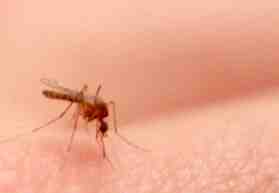
Direct link to this page: https://www.hayadan.org.il/insects1.html
About 70% of the animal species on earth are insects - there are about a million species of them - and it is possible that another million have yet to be discovered. The great majority of them are not liked by us - but essential to our existence and the ecosystem in which we operate. Among them: eaters of rotten meat and carcasses, emit toxins and foul-smelling liquid, carriers of deadly diseases. Unique are: the tiger beetle - the fastest insect in the world (a person has to run at a speed of 320 km/h to keep up with it); a large cricket called "Brachytropes membranmassus" whose voice can be heard at a distance of 15 km; A beetle in a blister on its leg, a liquid containing the chemical "cantharadine" is hidden.
for sexual arousal ("nature's Viagra").
Only 25 of the 1500 species of scorpions are dangerous to humans; One female scorpion gives birth to more than 25 children, in a "birth" process that lasts 240 hours. There are deaf beetles in nature and in South Africa there are 780 species of dung beetles that feed on excrement. More than 3000 species of cockroaches in our world - only a few of them are harmful and among them they also feed on paper and in their stomachs a system of teeth, a kind of teeth, for fast digestion. Only the female Anopheles mosquito, which transmits the malaria-causing parasite, bites - and with the victim's blood, feeds her offspring.
A new series, six episodes, called "Insects from Hell", is broadcast from Saturday, 12.4 (20:00) on the "National Geographic" channel and introduces the viewer to this scary and threatening microscopic world of arthropods - beetles, fishes, scorpions, spiders and the like. The series is led by the entomologist, the insect expert, John Willers from the University of Cambridge, who was also involved in the rehabilitation and management of wild animals. In Sheparth Park, his city in England, he established the "City of Insects" with more than 2000 species.
https://www.hayadan.org.il/BuildaGate4/general2/data_card.php?Cat=~~~500871405~~~197&SiteName=hayadan
